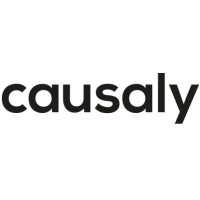
Equity Investment Market Update
Q3 2023
491
deals completed
-16.9%
from Q2 2023
-15%
from Q1 2023
£2.56b
invested
-37%
from Q2 2023
9.4%
from Q1 2023
- Dated between 1 July 2013 to 30 September 2023
- Be publicly announced
- Some form of equity investment
- Secured by a non-listed UK company
Headline funding figures
Once again, the UK high-growth companies felt the effects of an equity funding downturn, with just 491 deals announced in Q3 2023. That’s an almost 17% decrease from Q2 2023 and a 37% decrease in the amount invested. This is the lowest number of completed deals in a quarter since Q3 2018.
However, the amount invested, while lower than Q2, was 9% higher than Q1—at £2.56b. So, it’s not all doom and gloom. What could this signify? Investors may be focusing on fewer but larger and potentially more secure investments, indicating a preference for quality over quantity; and though this wasn’t indicated in a rise of megadeals, we did see a higher investment into medium-sized deals overall.
The increase in the amount invested from Q1 suggests that there’s still confidence in the UK private sector, but with more diligence and selectivity in deal-making as the number of deals remains low.
AI saw the highest number of closed deals, as it did in Q1 and Q2 this year. This could be chalked up to the current hype AI has seen coinciding with a downturn in the UK investment landscape. Whereas sectors like fintech are losing their dominance in the investment market, and maybe even becoming less appealing to investors. This is evidenced in our sector analysis.
Sectors
Life sciences saw an increase in deals this quarter—growing from 30 in Q2 to 42. This could be due to the long commercialisation cycles that sciences investment and drug discovery can have. Meaning investors may be less swayed by the current macro environment.
Fintech and cleantech continued to decrease in the number of deals, both at 52. This appears to be a global issue, with fintech investment dropping across North America, EMEA, APAC and Latin America.
Cleantech, which saw investment highs (in number of deals) in the beginning of 2022, has seen a steady decline in deals over 2023. However, this might not be what it seems. As while the number of deals has decreased, the amount of total capital raised in this sector has continued to grow annually. This trend indicates that investors are channelling funds into fewer, but larger-scale investments, probably focusing on Cleantech solutions that are more advanced.
Agritech and blockchain both fell significantly—falling by 55% and 60%, respectively. This could be attributed to the previous high growth both these industries have seen. Agritech had just four deals and while this sector usually has a low number of deals, this is a jump down from Q1 (12).
Similarly, blockchain investment has plummeted. But this could be more nuanced as crypto appears to be coming-up again, especially with interest around ETFs. According to the Financial Times, Bitcoin hit a 17 month high in late October—the price of the digital currency leapt more than 10% in 24 hours to $35k a token. Companies can often use these tokens to raise money so they may be less in need of traditional equity when crypto interest is strong. Equating to less deals in this sector.
Also the collapse of FTX and the ongoing high-profile trial of its founder, Sam Bankman-Fried, and the fading hype around crypto has no doubt contributed to investor vigilance in this arena, and fewer deals.
Overall, as mentioned, the highest number of closed deals was in AI, a trend that has continued from Q2—with a total of £270m being raised in AI this quarter. The continued dominance of AI in deals, and the fanfare around generative AI in particular, indicates its sustained appeal and importance in the investment landscape.
With the rapid advancements in technology and increasing integration of AI in various sectors—from healthcare and finance to entertainment and transportation—the AI landscape seems to be on the brink of even more expansion and innovation. However, it’s worth asking the question: how long will the hype around AI last?
Stages of evolution
Deals across every stage of evolution continued to drop, excluding the growth stage—which increased by 22% compared to Q3 2022. However, the seed stage saw a significant decrease of 29% compared to Q3 of last year.
Of all the stages that decreased, established stage companies saw the lowest decline in deals compared to Q3 2022—at 8%.
Companies at the venture stage completed the most deals this quarter, accounting for 205 transactions. The value of investment in venture-stage companies witnessed a remarkable surge, showing a 114% increase over the amount invested in Q3 2022.
See our stages of evolution.
Regional trends
London saw the highest number of deals secured (243)—50% of all the deals closed this quarter. South East England saw the second-highest number of closed deals (39), but was still significantly lower than London.
The lowest number of secured deals was in Northern Ireland, with just three deals. Northern Ireland’s largest deal was a £13.4m round raised by B-Secur. B-Secur develops analytics technology that can be integrated with medical devices and provide deeper insights into electrocardiogram data using advanced algorithms.
Companies in Scotland completed a total of 37 deals. Scotland’s largest deal was a £36m round secured by Chemify in August 2023. Chemify provides digital hardware and software for application in chemical processing. More specifically, to develop its technology and new medicines by digitising the process.
Investor types
Investment from every type of investor declined this quarter, mirroring the overall decline in the number of completed deals. Investments via Crowdfunding platforms experienced the sharpest fall with a 30% decrease. Given that crowdfunding typically depends on retail investors, it is logical for this investment type to suffer during a more challenging economic environment.
Private equity and venture capital investors were the most active, accounting for 35% of all closed deals. PE and VC are set up to invest in companies at stage and size in this way so they naturally dominate the market.
Angel networks saw the smallest decrease at 4.1%—and while the deals from angel networks remain lower than PE and VC, it still suggests individual investors with personal capital remain more resilient or opportunistic during uncertain times, given their often long-term and diversified investment strategies.
There was also a lower number of university investments, with just 11 deals. This is not surprising given the economic state of the education sector following the pandemic. They tend to be more conservative with their investment endeavours, channelling funds towards immediate needs and recovery rather than external investments.
Deal sizes
Considering the number of closed deals, we still saw a steady number of megadeals this quarter compared to other quarters. There were seven megadeals this quarter, 10 in Q2 and six in Q1.
However, gigadeals remain low, with just two gigadeals this Q3. Gigadeals have stagnated this year at a maximum of three or lower. This is much lower than in 2022 when we saw fourteen gigadeals in Q1. These numbers mirror the prevailing macroeconomic patterns in the UK, much in the same way as we saw in our H1 2023 Equity Investment Market Update.
Biggest deals of the quarter

1. Field
Amount: £200m
Deal date: 25 July 2023
Location: London
Sector: Clean energy
Field is focused on developing renewable energy infrastructure, with an emphasis on energy storage.

2. CMR Surgical
Amount: £134m
Deal date: 20 September 2023
Location: East of England
Sector: Medical instrumentation

3. Netcraft
Amount: £76.7m
Deal date: 18 July 2023
Location: London
Sector: Analytics, tools and insights

4. Electrify Video Partners
Amount: £69.4m
Deal date: 22 September 2023
Location: London
Sector: Marketing services

5. Curve
Amount: £58m
Deal date: 21 September 2023
Location: London
Sector: Mobile apps and payment processing

6. Tenpoint Therapeutics
Amount: £53.9m
Deal date: 12 July 2023
Location: East of England
Sector: Healthcare

7. DICE
Amount: £51.1m
Deal date: 23 August 2023
Location: London
Sector: Mobile app and retail
DICE has created an online platform that allows users to purchase tickets for live events and offers recommendations for related events.

8. Tractable
Amount: £49.9m
Deal date: 18 July 2023
Location: London
Sector: Analytics, tools and insights

9. Causaly
Amount: £45.7m
Deal date: 13 July 2023
Location: London
Sector: Analytics, tools and insights

10. Sylvera
Amount: £43.7m
Deal date: 18 July 2023
Location: London
Sector: Analytics, tools and insights

